The Day the Axis Powers Took on America: Germany and Italy Declare War on the United States
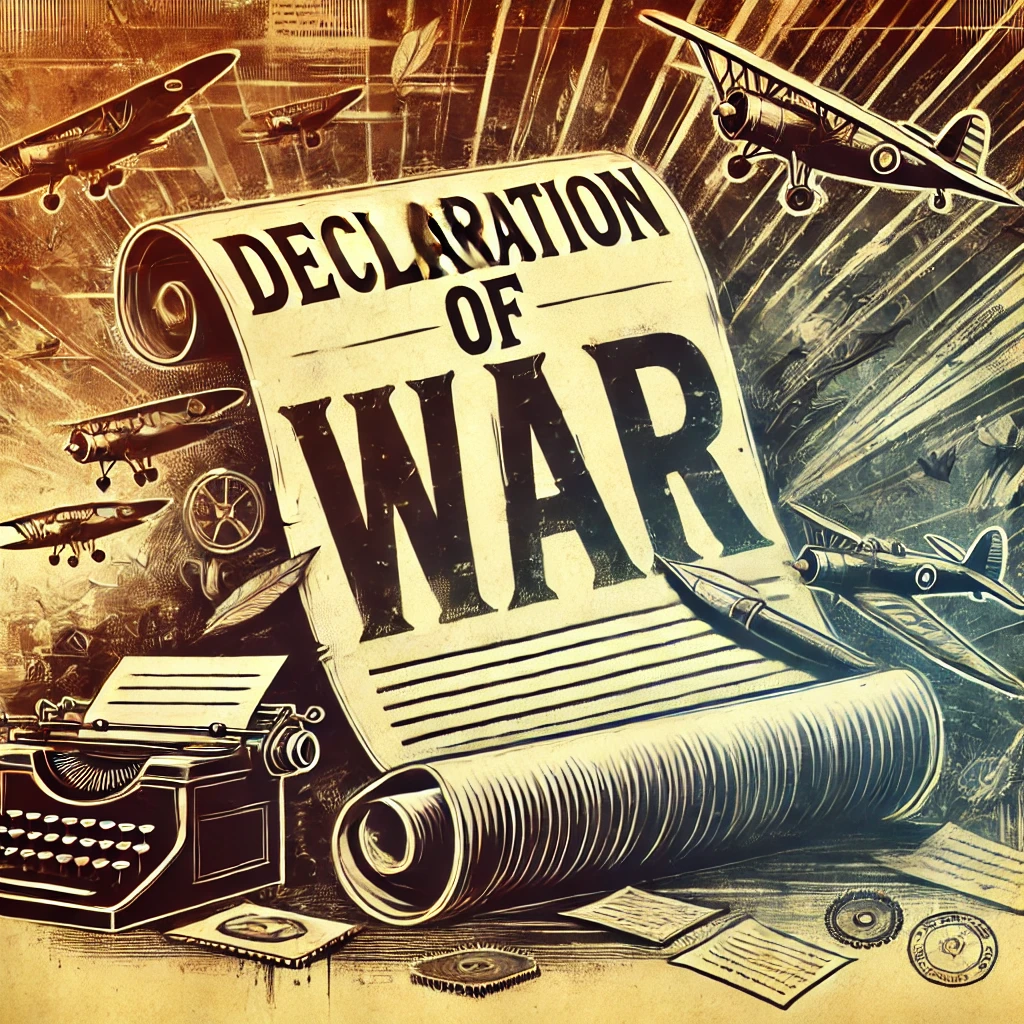
On December 11, 1941, four days after the devastating Japanese attack on Pearl Harbor, Germany and Italy declared war on the United States. This declaration solidified the Axis powers’ alignment and officially drew the United States into World War II on multiple fronts. Adolf Hitler and Benito Mussolini, leaders of Germany and Italy respectively, aimed […]
The United States Enters World War II: A Turning Point in Global History
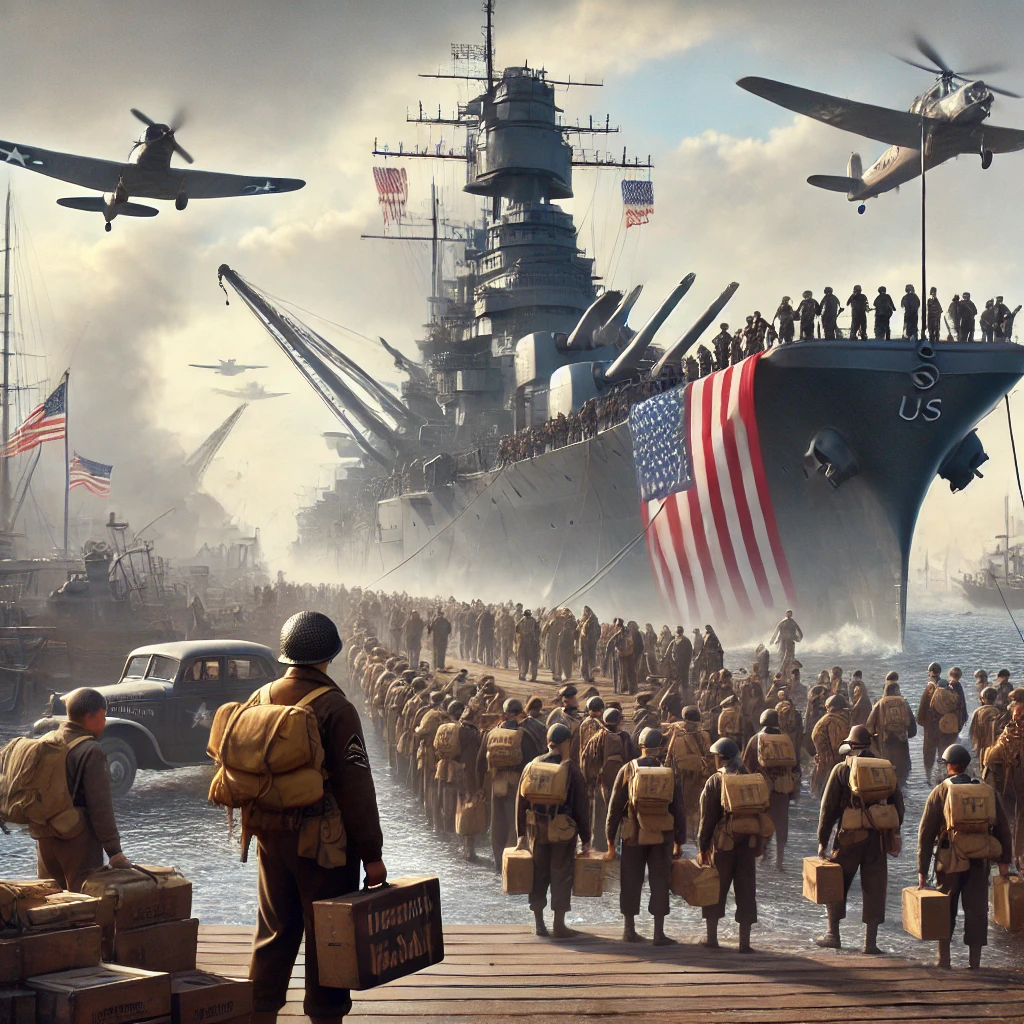
On December 8, 1941, the United States officially entered World War II, a day after the Japanese attack on Pearl Harbor. This devastating assault on the U.S. Pacific Fleet in Hawaii resulted in over 2,400 American casualties and the destruction of numerous ships and aircraft. President Franklin D. Roosevelt addressed Congress with his iconic “date […]
The Day That Changed Everything: The Attack on Pearl Harbor
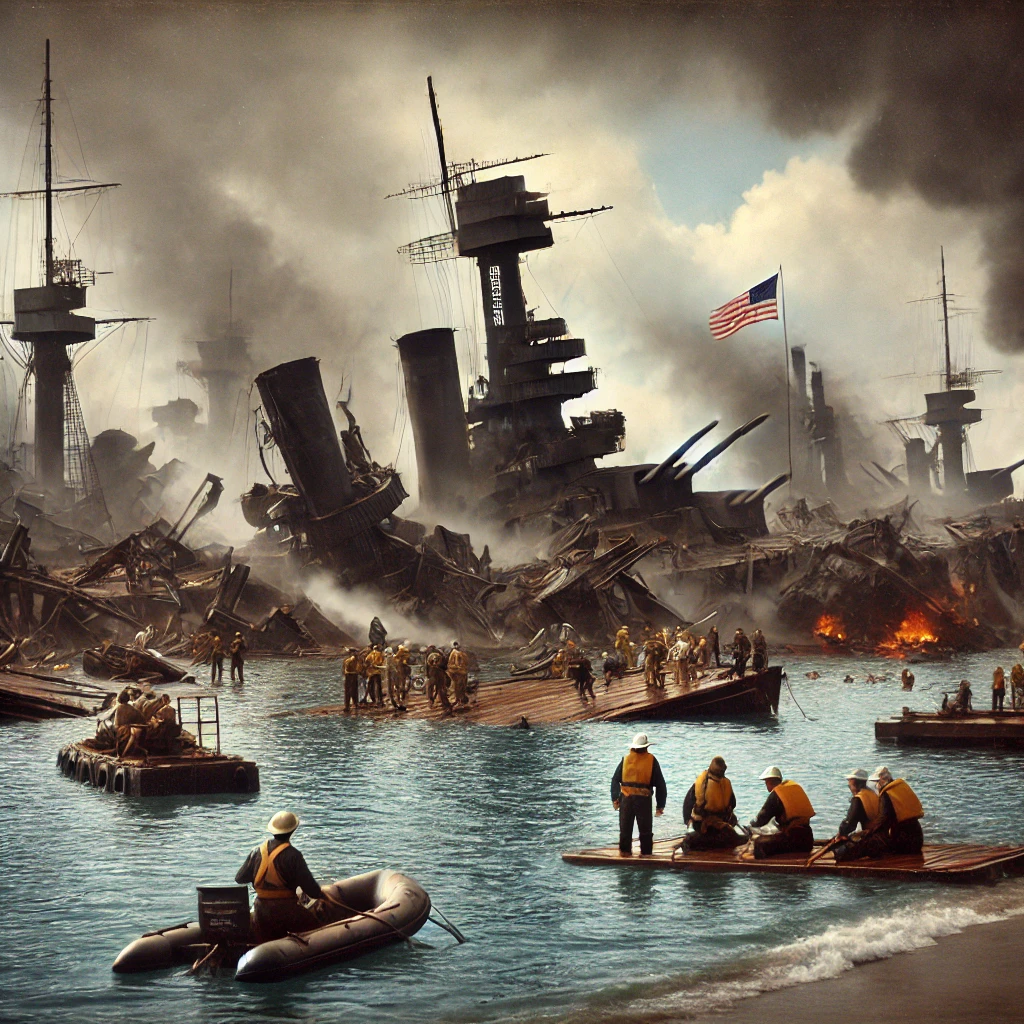
December 7, 1941, is etched into history as a day of unprecedented shock and loss. Early that Sunday morning, the Imperial Japanese Navy executed a meticulously planned surprise attack on Pearl Harbor, a key U.S. naval base in Hawaii. The assault involved over 350 aircraft and targeted battleships, airfields, and other military installations. Within hours, […]
The Order Is Given: The Bombing of Pearl Harbor
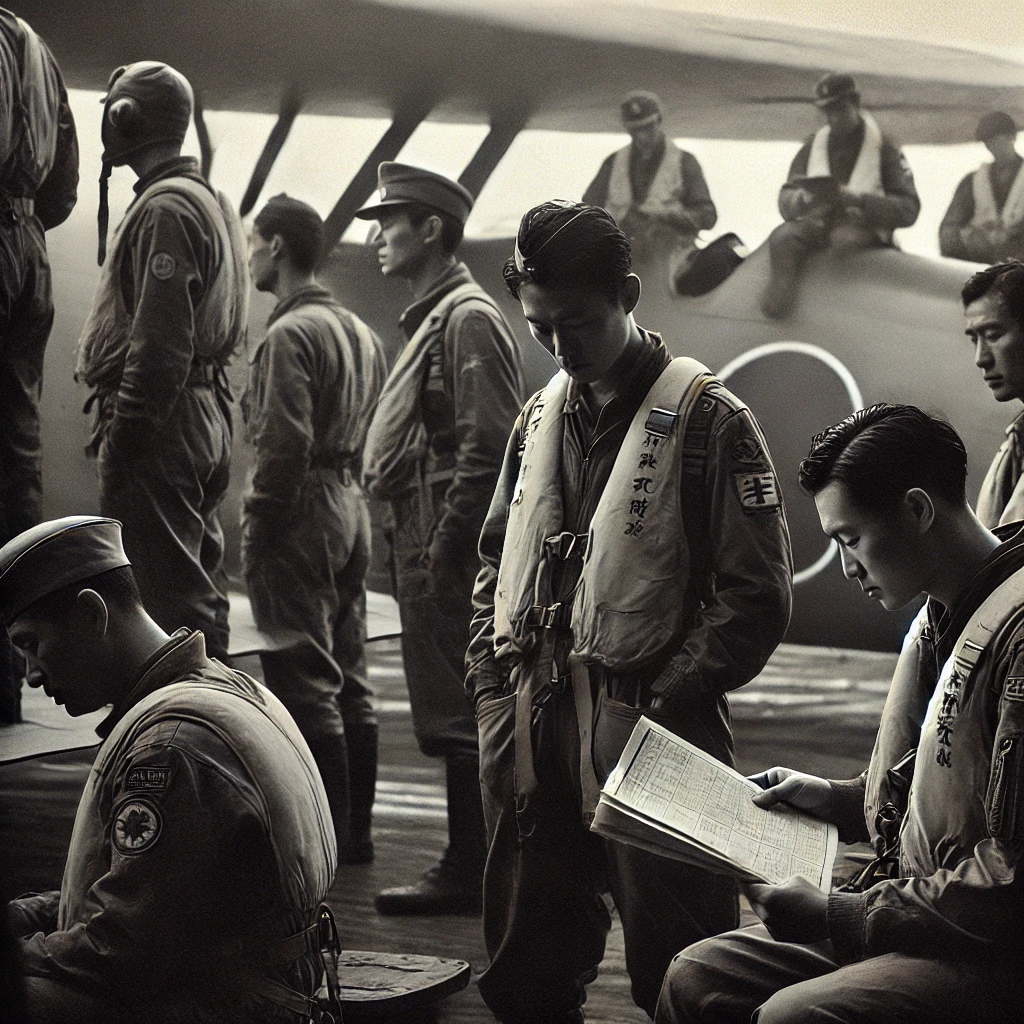
On November 5, 1941, the Japanese military issued the final orders to attack Pearl Harbor, setting the stage for one of the most pivotal moments in U.S. history. This surprise military strike on December 7, 1941, would lead to the United States’ entry into World War II and forever alter the course of history. The […]
The Magic of Flight: The Premiere of Disney’s Dumbo

On October 23, 1941, the world was introduced to a heartwarming tale of perseverance and friendship with the premiere of Disney’s animated classic, Dumbo. This beloved film, featuring a young elephant with oversized ears who learns to fly, has captured the hearts of audiences for generations. Not only does Dumbo showcase the artistic innovation of […]
The Pentagon: Beginnings and Purpose
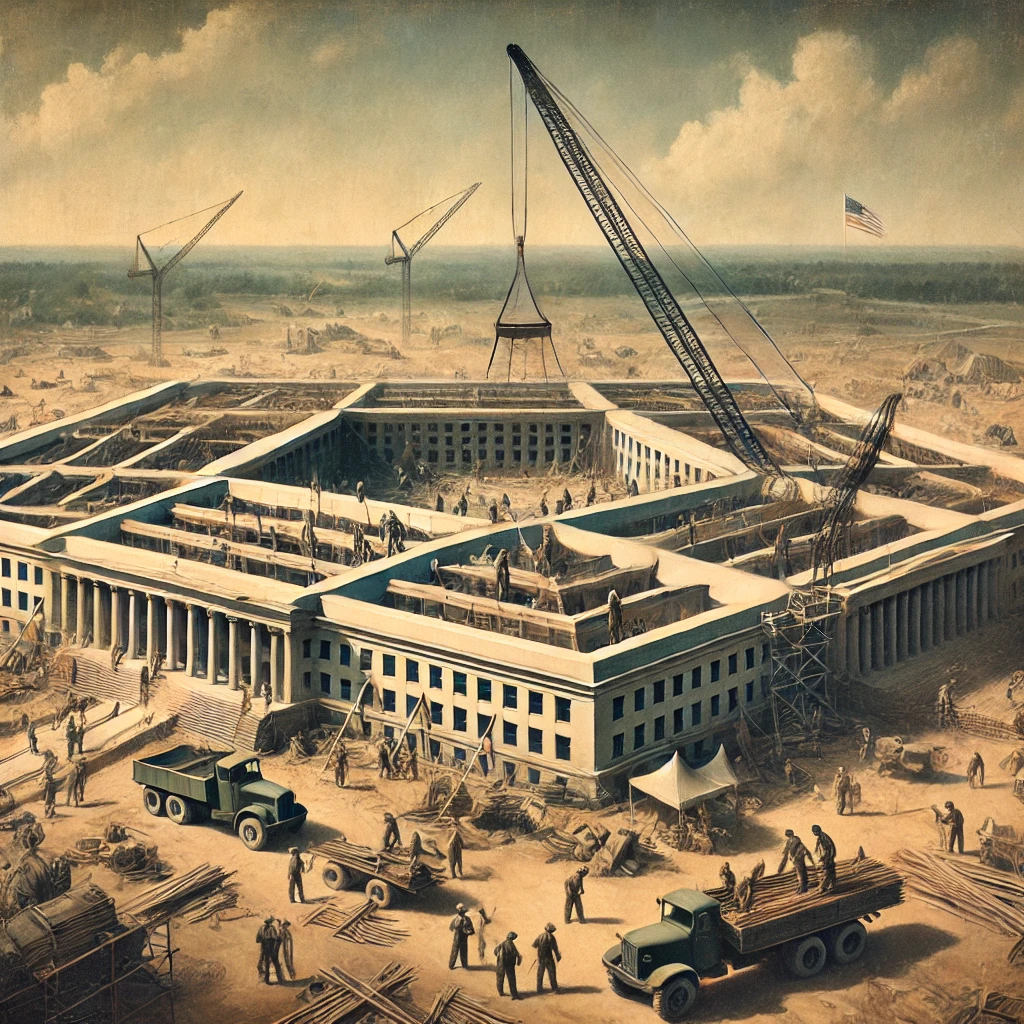
On September 11, 1941, the construction of the Pentagon, one of the world’s largest office buildings, commenced in Arlington County, Virginia. As the headquarters of the United States Department of Defense, the Pentagon’s creation was driven by the urgent needs of World War II and the necessity for a centralized military command structure. The Pentagon […]
The Sinking of HMS Hood by the Bismarck
In a significant naval confrontation during World War II, the German battleship Bismarck sank Britain’s HMS Hood on May 24, 1941. The battle occurred in the North Atlantic, where the Hood, one of the pride ships of the Royal Navy, was struck and sunk within minutes, resulting in the loss of all but three of […]
Croatia Declares Independence
In 1941, Croatia declares independence, marking a pivotal moment in the nation’s history as it seeks autonomy from Yugoslavia amid the tumult of World War II. This declaration sets the stage for Croatia’s subsequent struggle for sovereignty and its eventual emergence as an independent nation-state, shaping the course of Balkan politics and identity in the […]
Yugoslavia Joins the Axis Powers
Yugoslavia joins the Axis Powers, aligning with Nazi Germany and Fascist Italy under pressure from Adolf Hitler. This decision triggers internal turmoil and resistance within Yugoslavia and contributes to the escalating tensions that would erupt into World War II in the Balkans.
Franklin D. Roosevelt Delivers his “Four Freedoms” Speech
On this day in 1941, President Franklin D. Roosevelt delivered his famous “Four Freedoms” speech during his State of the Union address. The speech outlined the essential freedoms people everywhere should enjoy.
